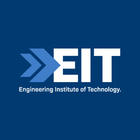Professional Certificate of Competency in Mechanical Engineering
Professional Certificate of Competency in Mechanical Engineering
This professional development course is designed for engineers and technicians who need to understand the essentials of mechanical engineering. Course Details Mechanical engineering, in simple terms, deals with any equipment that moves; this is what makes it perhaps the broadest and most diverse engineering discipline. The mechanical discipline primarily derives…
Categories
COURSE DESCRIPTION
This professional development course is designed for engineers and technicians who need to understand the essentials of mechanical engineering.
Course Details
Mechanical engineering, in simple terms, deals with any equipment that moves; this is what makes it perhaps the broadest and most diverse engineering discipline. The mechanical discipline primarily derives its breadth from the need to design and manufacture everything from small individual devices, such as measuring instruments, to large systems such as machine tools and power plants.
Easy installation and serviceability are critical to the success of a mechanical system, as is operational and design flexibility. Understanding parameters governing the selection and design of mechanical systems is essential for identifying suitable systems for a particular application.
To place all these issues in context, a good working knowledge of mechanical principles combined with a solid understanding of critical concepts such as force, energy, and heat is essential. Mechanical power transmission is discussed from the point of view of gears, couplings, and bearings. Proper selection and sizing of these critical mechanical components are vital to ensure optimum performance and improved efficiency of a mechanical system. Recently, fluid engineering has undergone significant change, and therefore, a detailed overview of the underlying principles of fluid power and its applications is vital. The theory behind heat transfer, the various heat transfer mechanisms, and the design of heat exchangers are also examined.
Any study of mechanical systems would be incomplete without including a review of mechanical vibrations. This will help you in monitoring, controlling, and analyzing vibrations and in conducting fault diagnoses in mechanical systems.
The field of maintenance has evolved into a separate and highly specialized function. An effective maintenance regime helps identify failure symptoms and enables the initiation of corrective measures for preventing unscheduled and sometimes catastrophic failures. Lastly, a discussion on the numerous standards, codes, and regulations governing mechanical systems helps put the whole course into perspective.
Time Commitment & Duration
You are expected to spend approximately 5-8 hours per week learning the course content. This includes attending fortnightly webinars that run for about 90 minutes to facilitate class discussion and allow you to ask questions. This professional development program is delivered online and has been designed to fit around full-time work. It will take three months to complete.
REQUIREMENTS
For entry into most EIT degree programs, you need to have completed a minimum level of education similar to successful completion of Australian Year 12 with good grades.
EDUCATIONAL INSTITUTION
The Engineering Institute of Technology (EIT) delivers industry driven programs to equip its students with the skills required in the real industrial world. Its study options are available across Perth and Melbourne; and include classroom sessions, practical lab exercises, assessments, class discussions and self-study. Additionally, students enjoy access to industry experts based around the globe through live and interactive online presentations. All EIT programs provide access to remote laboratories and cutting-edge simulation software. Hands-on laboratory practicals are an essential component of EIT’s programs to ensure students put theory into practice. These hands-on workshops cover the major discipline-specific applied skills required for competency in engineering practice.




